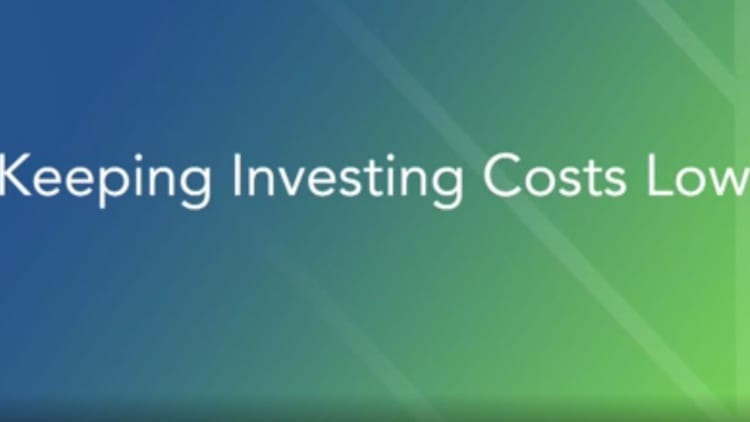Fees for the world's most popular investment funds are in a race to zero, new J.P. Morgan research has revealed.
A report by the U.S. bank found that average fees for exchange-traded funds (ETFs) of the kind offered by investment behemoths like Vanguard and BlackRock in the U.S. have tumbled by around 40% over the past eight years.
Fees in the $5.6 trillion global ETF market are coming under increasing competitive pressure, it said, with the launch of funds with zero management and even negative fees in the past year. ETFs have become hugely popular in recent years with investors — they are baskets of securities that track an underlying index, and can contain stocks, bonds, commodities, or a mixture of securities.
"This lower fee trend has been driven both by investor flows gravitating towards lower fee funds within each region and asset class and the move by ETF issuers to selectively cut the expense ratio on a number of funds," said Marko Kolanovic and Bram Kaplan, J.P. Morgan global quantitative and derivatives strategists, in the research.
The lowest 20% of ETFs by expense ratio captured 80% of U.S. flows in the past five years, while the remaining 80% of funds received just 20% of flows, as investors have flocked to the lowest cost options. The gap is widening, the report suggested, with the lowest fee quintile attracting 97% of all net flows in the past year while the 80% most expensive funds saw close to zero of the $300 billion of new cash invested in U.S. ETFs.
Vanguard has been a notable beneficiary — this year alone, the asset management firm has cut fees across 21 of its largest ETFs, which hold a total of around $660 billion in assets. The reductions will collectively save investors approximately $88 million in fees per year, the J.P. Morgan report said.
Rival Fidelity was the first to market with zero-management fee funds, launching four mutual funds in the second half of 2018. This was followed by the launch of a number of zero-management fee ETFs by relative newcomers to market.
One start-up, Salt Financial, also recently launched a "negative fee" ETF, meaning it effectively pays investors for holding onto the fund. However the -5 basis point? fee is only on the first $100 million in assets under management and only until April 2020, after which the fee is due to revert to its standard +29 basis points.
Another recent trend in the ETF fee war is for major issuers to relaunch or rebrand lower fee versions of simple market beta products in order to capture flows, largely from "buy and hold" investors seeking the cheapest passive products.
These products have seen repeated fee cuts and attracted huge asset flows. Examples include most of Vanguard's ETF portfolio, BlackRock's iShares Core suite of 25 funds across asset classes, Schwab's Core index funds and J.P. Morgan Asset Management's BetaBuilders suite.



